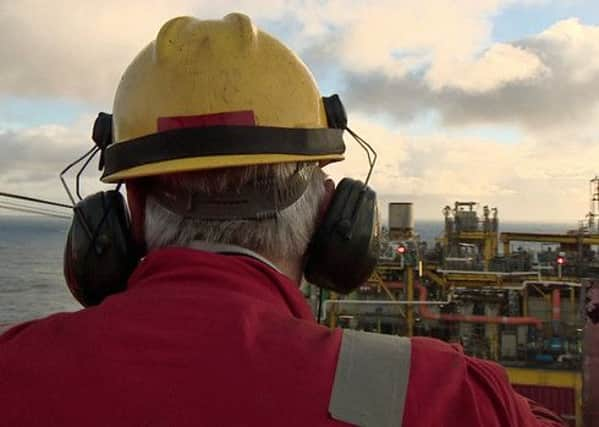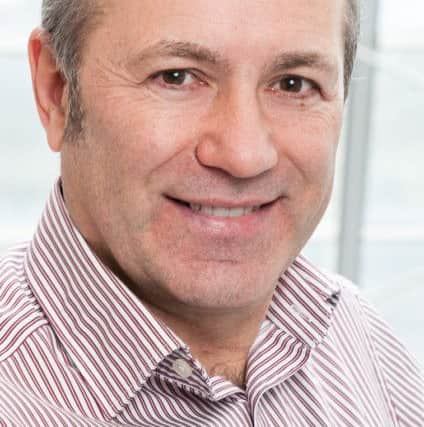Call for future training for offshore medics


Academics have called for offshore medics to be retrained to cope with the pressures created by an ageing workforce in the North Sea.
Professor Ian Murray, head of the school of nursing and midwifery at Robert Gordon University in Aberdeen said that those who started in the oil and gas industry in the 1980s and 1990s were no moving into their mid to late fifties when long-term conditions such as heart disease and Type 2 diabetes typically develop.
Advertisement
Hide AdAdvertisement
Hide AdProfessor Murray, an expert in remote healthcare, said offshore medics could be hired from professions such as paramedics and combat medical technicians, but that skills to cope with changing medical needs were required.


Oil and Gas UK, which represents the industry, has rejected notions that the North Sea workforce is getting older as a whole but professor Murray said it was true that some employees were ageing as the sector matures.
Professor Murray said; “What we are trying to say is that offshore medics require additional training and undertake mandatory periodic training so they can carry out resuscitations and these sorts of activities.
“The North Sea is often described as an ageing asset, we often think of platforms and wellgs getting old but it is also true of the workforce. A lot of people are getting to the kind of 50-year plus age group.”
Oil and Gas UK said that new training standards for medics, set by Health and Safety Executive, were being discussed.
Professor Murray said operators were generally open for discussion but cost was a factor at a time when firm’s were cutting spending.
He added: “We are suggesting that you need to do more to support your workforce but it is often said that in health and safety, more emphasis is on the safety.”
Professor Murray said there was anecdotal evidence that offshore workers did not have the “best lifestyle patterns.”
Advertisement
Hide AdAdvertisement
Hide AdHe added: “Alcohol and drug misuse is an issue and if you combined that with someone being less well, if you have got someone coming back to work who is not so healthy and who has substance misuse issues, you have a less safe worker.”
He said it was his understanding that at one major North Sea operator had taken a policy decision to only employ qualified nurses on offshore medical teams.
Professor Murray added:”I would argue that a lot of nurses could have a stronger knowledge base than, for examples, paramedics or combat medical technicians, whose knowledge and focus is on acute illness and injury
“We shouldn’t take away from the ability of being able to manage a severely injured individual but these events are thankfully much less common than they used to be.
“We are not working with a young workforce in a primarily uncontrolled environment. We are now working with a hugely controlled safety context with a much older workforce.”
Earlier research conducted by RGU in collaboration with Oil and Gas UK found that offshore workers are now almost a fifth heavier than in the mid-1980s.
The average weight now of men offshore is about 14st 3.5lbs, a 19% increase, with the gain due partly to increased interest in body building but also due in some cases to lifestyle.
The standard qualification for offshore medics is the offshore medic certificate, which is ratified by the Health and Safety Executive.
Advertisement
Hide AdAdvertisement
Hide AdCandidates can complete the course over four weeks and generally to have three years experience as either a nurse, paramedic or combat medical technician.. The certificate must be renewed every three years.
Dr Graham Furnace, medical adviser to Oil & Gas UK, said: ‘The UK offshore workforce is prone to the same lifestyle-related range of medical conditions as their onshore colleagues.
“Offshore workers undergo two-yearly medicals to ensure that any medical conditions are well-managed and compatible with continued offshore work, and the clinical care and treatment of chronic conditions, such as diabetes, remains under the periodic supervision of the worker’s GP.
“Despite this, medical emergencies can and do occur offshore, and offshore installation medics are trained to respond to these.
“Their training is governed by the HSE, which has very recently consulted the industry on a revised code of practice on offshore medic training.
“It has been recognised for some time that the most common serious medical emergency offshore is related to cardiac disease events, and offshore medic training reflects this.
“In addition, many companies already provide additional training to medics beyond that required by legislation, and the industry has an active workgroup comprising medic representatives, industry doctors, and health and safety professionals, looking at ongoing additional training and competence issues for offshore medics.’